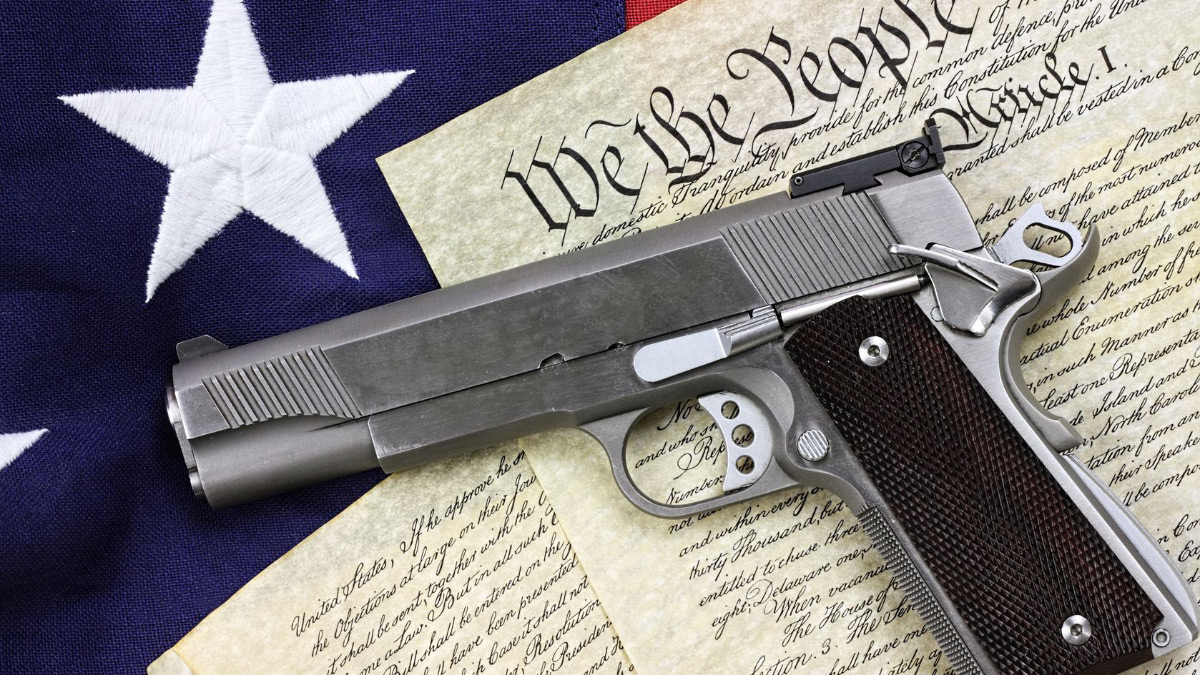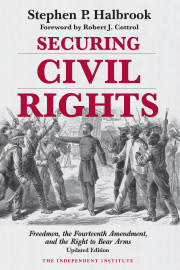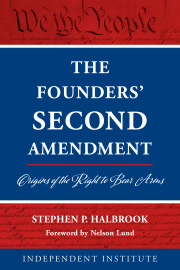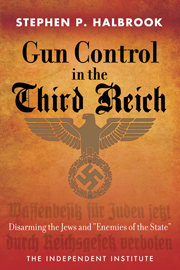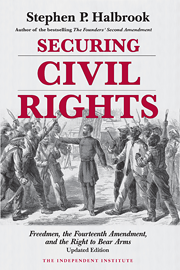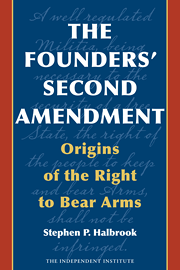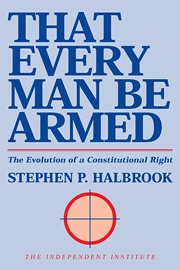For 20 years now, a well-meaning law professor has been peddling the fiction that the Second Amendment—guaranteeing the right of Americans to keep and bear arms—was adopted to protect slavery. He first proposed this in a 1998 law review article and trotted it out again in a recent New York Times op-ed.
The trouble is: It’s untrue. Not a single one of America’s founders is known to have suggested such a purpose.
When the Redcoats came to disarm the colonists, the American patriots relied on the right to “have arms for their Defense,” as stated in the English Declaration of Rights of 1689.
In 1776, Pennsylvania declared: “That the people have a right to bear arms for the defense of themselves, and the state.” Vermont copied that language in its constitution, which explicitly abolished slavery. Massachusetts and North Carolina adopted their own versions.
When the states debated adoption of the Constitution without a bill of rights in 1787-88, Samuel Adams proposed the right to bear arms in Massachusetts’s ratification convention. The Dissent of the Minority did so in Pennsylvania, and the entire New Hampshire convention demanded recognition of the right.
There was no connection to slavery in any of these historical antecedents.
In his articles, Professor Carl T. Bogus of Roger Williams University speculates that George Mason’s and Patrick Henry’s demands in the Virginia ratification convention could have been motivated to protect slavery. Not so.
Mason recalled that “when the resolution of enslaving America was formed in Great Britain, the British Parliament was advised ... to disarm the people; that it was the best and most effectual way to enslave them.”
And Patrick Henry implored: “The great object is, that every man be armed.” The ensuing debate concerned defense against tyranny and invasion—not slavery.
New York, North Carolina and Rhode Island joined in the demand for what became the Second Amendment. The right to bear arms had universal support.
It was the denial of the right of all “the people” to bear arms that supported slavery. The Supreme Court’s notorious Dred Scottdecision held that African-Americans could not be regarded as citizens, for otherwise they could hold political meetings and “keep and carry arms wherever they went.” Frederick Douglass advocated Second Amendment rights for all, and Sojourner Truth carried guns in helping slaves to escape.
When slavery was abolished, the Southern states prohibited blacks from firearm possession. Congress countered with the Freedmen’s Bureau Act of 1866, which protected “the constitutional right to bear arms,” without distinction of color. A major impetus for adoption of the 14th Amendment was to protect this right from state violation.
American republican ideals spread to Europe, where subjects sought to break the chains of oppressive government. A draft of the French Declaration of Rights of 1789 stated: “Every citizen has the right to keep arms at home and to use them, either for the common defense or for his own defense.” But new aspiring elites did not trust the people and rejected it. The French Revolution would turn into the Terror.
European reformers tried again in the democratic revolutions of 1848, but the forces of reaction crushed them.
Europeans would pay a dear price for not recognizing the right to bear arms. Hitler would disarm political opponents and Jews. The countries he occupied had prewar gun registration lists, which the Nazis used to ferret out gun owners. Many were executed.
None of the above is mentioned in today’s history classes. Instead, political elites pounce on every tragedy to attack the Second Amendment right to self-defense and advocate that citizens rely on feckless government for protection.
The Second Amendment has nothing to do with slavery; it never did. The historical injustice is that even after the Constitution’s ratification, African-Americans were denied fundamental rights that others enjoyed, including the right to arm themselves to protect their lives and liberties.

